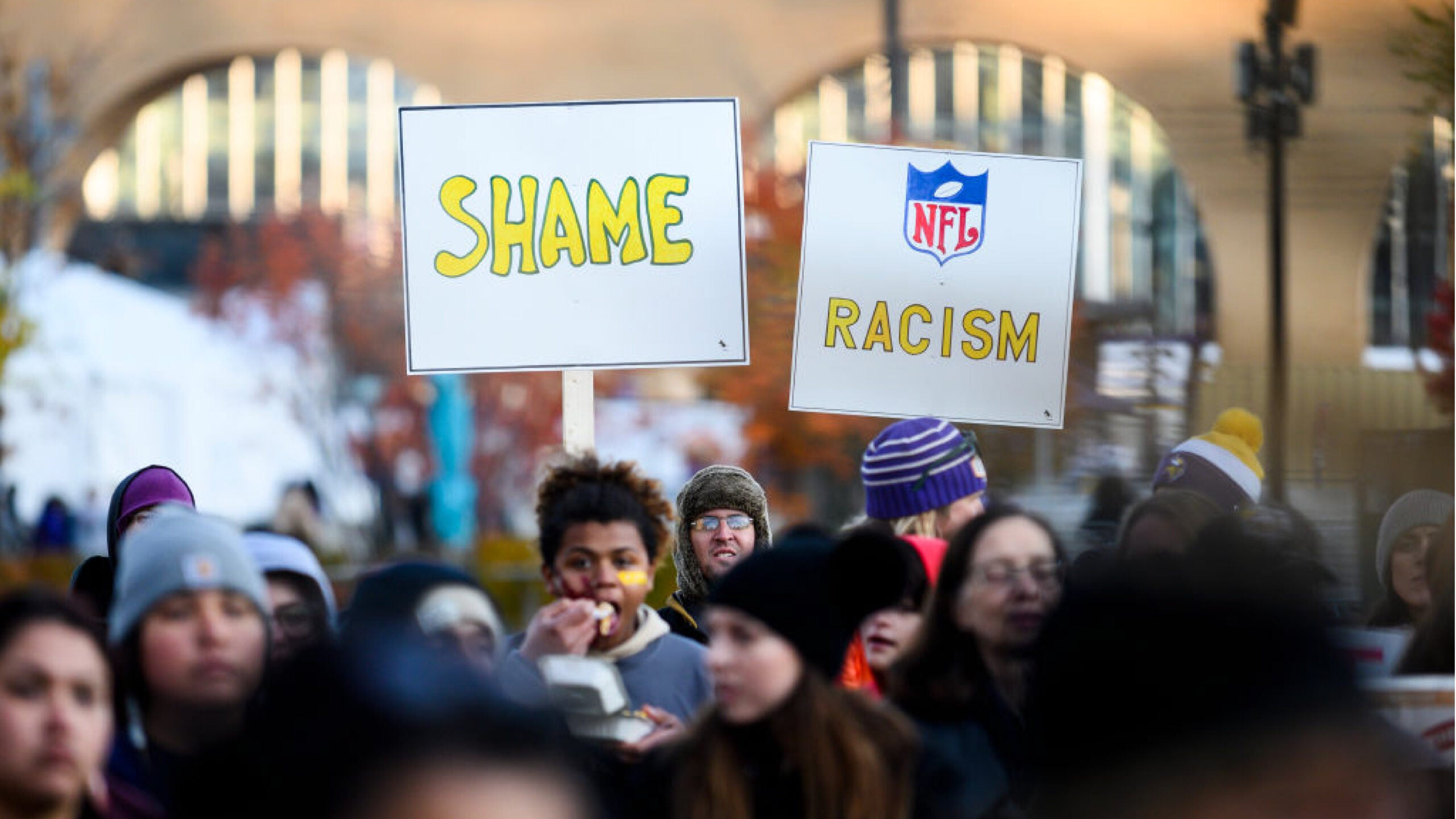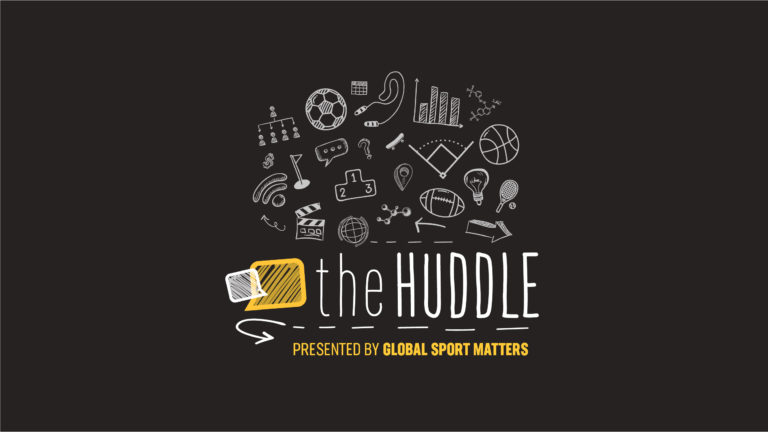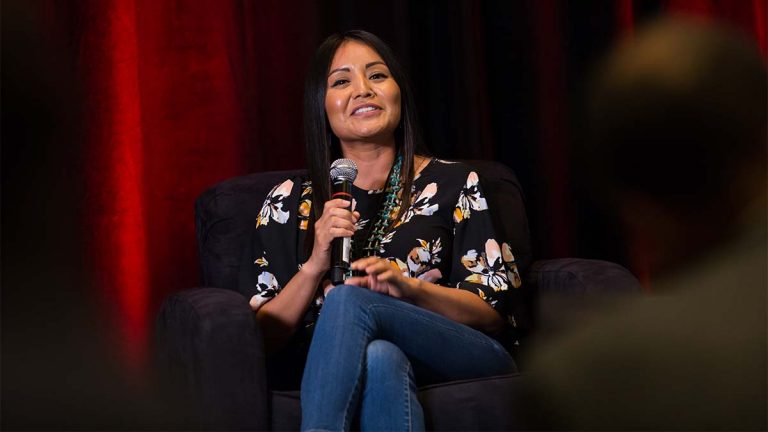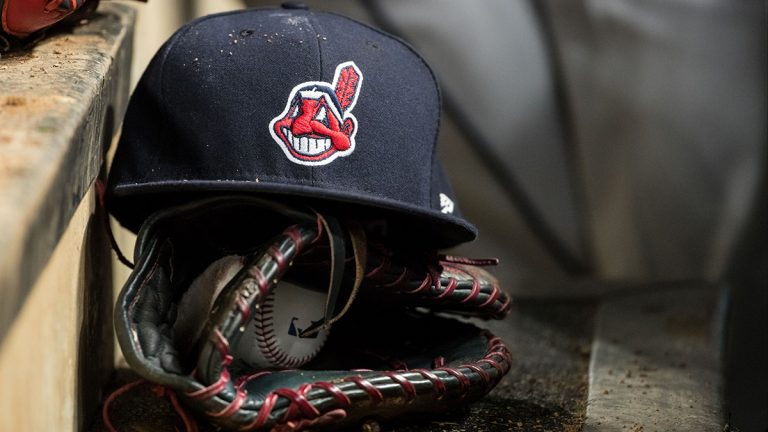Listen Again: Reaction to Washington NFL Team Retiring The R-Word & Racist Mascot
Why this matters
On July 13th, it was announced that Washington Football Team would retire their racist name and logo. While this change is a victory, it does not eliminate the racial injustices faced by the Native American community.
After years of lawsuits and public outcry, it seemed like Washington's NFL team would never change its name.
This year is different. If there is anything that 2020 has taught us, it is that change is inevitable.
After facing pressure from major sponsors, the Washington team finally surrendered and announced on July 13th that they would retire its racist name and logo. While this announcement may be an overdue victory, the organization does not deserve an applause.
Amanda Blackhorse, the lead plaintiff in Blackhorse v. Pro-Football Inc., is skeptical about the renaming process. “Given the history of the team and how they’ve treated Native people, it could be anything,” she says. “It could be another Native theme. I don’t know.”
The team’s historical treatment of Native people is abhorrent. Olympian Billy Mills says that he never associated the team’s brand with football. He associated it with genoicde.
The genocide of Native Americans is notoriously inaccurately depicted or absent in history books. Dr. Bryan Brayboy, a professor at Arizona State University, says, “It was first physical erasure and then later it became a myth behind that about having grown something on vacant lands.”
Mills refers to this mythology, manifest destiny, documents of discovery, and Jim Crow as footprints in United States history. “Those footprints are etched into every fiber of our social way of life, educational way of life, entrepreneurial way of life, and our political system. Forever dictating our rule of law,” he says. “Without understanding what that created, not much will be accomplished. And what was created was generational trauma and generational privilege.”
Sport played a role in generational trauma long before the Washington team was established. Natalie Diaz, former collegiate athlete and author of When My Brother Was an Aztec, refers to the “nefarious” use of sports at boarding schools to assimilate Native American youth and eradicate their culture.
However, Diaz also says sport can be used to overcome injustice. She states, “Athletics are very much a danger because of the way they can bring people together and [form] comradery and toward a common goal and make them feel they have a power and that power is often power together.”
Films and shows like Keepers of the Game or Basketball or Nothing shed light on young Native American athletes and their communities. Athletes like Rosalie Fish and Jordan Marie Daniel use their platforms to bring attention to the Missing and Murdered Indigenous Women (MMIW) crisis. PGA golfer Notah Begay established the NB3 Foundation to support Native children and community health initiatives. NB3 has been dedicated to directing resources to Navajo Nation which has been disproportionately affected by COVID-19.
Awareness of health disparities, athlete advocacy, and the retirement of racist names and logos are also characteristic of the Black Lives Matter movement.
Many Native American activist groups have stated that they stand in solidarity with Black Lives Matter. These movements often intersect and collaborate. “The coalition with BLM and the mascot movement isn’t new,” Dr. Brayboy says. “If we’re going to move forward with larger questions of addressing structural and institutional and societal racism, it’s going to have to be through calls of coalition.”
As more of these calls are being answered, more action needs to be taken. While the eradication of racist language and symbols is necessary, it is not the end-all, be-all solution. As Dr. Brayboy says, “Words devoid of action mean nothing.”
Sport organizations who changed their problematic brand or released statements condemning racism still need to be held accountable when the news cycle moves on. They need to be actively aware and anti-racist in branding, hiring processes, and their treatment of athletes and fans. They must dedicate themselves to using their platform to speak out against injustice for the sake of future generations.
Listen and subscribe to the Global Sport Matters podcast:





